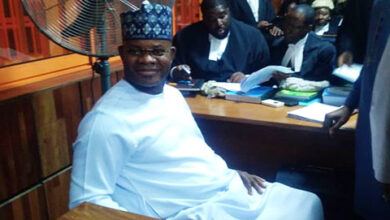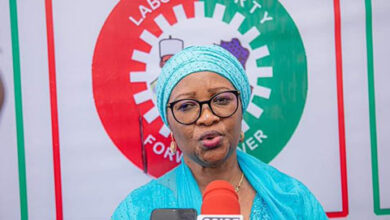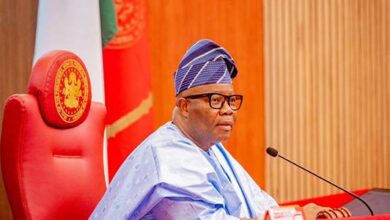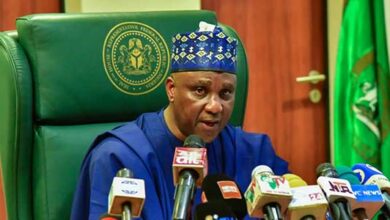Justice Omotosho: Nigeria’s Free Market System Allows MultiChoice To Set Its Own Prices

*Says FCCPC Lacks Authority to Fix or Suspend MultiChoice Prices Without Presidential Directive
The Federal High Court sitting in Abuja on Thursday dismissed a suit filed by MultiChoice Nigeria, the parent company of DStv and GOtv, challenging the Federal Competition and Consumer Protection Commission’s intervention in its recent subscription price hike.
The presiding judge, Justice James Omotosho, dismissed the suit, describing it as an abuse of court process.
MultiChoice Nigeria had approached the court seeking a determination on whether, under Section 17(a) of the FCCPC Act, the FCCPC had the authority to issue an order restraining the company from increasing its prices.
The applicant also sought a declaration on whether the FCCPC’s directive to MultiChoice to reverse its price hike on pay-TV packages was discriminatory and violated Section 42 of the Constitution.
The FCCPC, in its response, filed a counter-affidavit, arguing that a similar suit on the same subject matter was already pending before the Lagos Division of the court.
On March 1, 2025, MultiChoice had increased its subscription rates by up to 25%, citing inflation and rising operational costs.
Delivering judgment, Justice Omotosho held that the suit constituted an abuse of court process, as similar proceedings were already ongoing in Lagos.
“This suit is an abuse of court processes and a duplicity of actions,” the judge said.
Justice Omotosho noted that the plaintiff should have pursued its arguments in the Lagos Division, making the current filing procedurally inappropriate.
“The issues raised here can be dealt with in the suit filed in Lagos. The rule of law permits a counterclaim, and although the Lagos suit was filed by the FCCPC, MultiChoice can counterclaim,” he said.
The judge further observed that the plaintiff could have addressed its grievances in the earlier suit without filing a new one.
Justice Omotosho clarified that while the FCCPC has investigative powers under its establishing Act, it lacks the authority to fix or suspend prices unless explicitly delegated by the President through a gazetted instrument.
“The power to fix prices is exclusively that of the President. Any decision taken without such delegation is a nullity,” he stated.
He added that Nigeria operates a free market system, allowing service providers like MultiChoice to set their prices, with consumers free to accept or reject them.
Justice Omotosho emphasised that “Nigeria’s economy operates as a free market, with price controls permissible only when set by the President for an entire industry under Section 88 of the FCCPC Act”.
He further added, “If the President chooses to fix prices, it must apply to the entire industry and not a single player unless that player is a monopolist,” he noted.
The judge ruled that the FCCPC’s actions, including directing MultiChoice to suspend its price increase, violated the company’s right to a fair hearing and appeared selectively targeted.
He dismissed the FCCPC’s argument that MultiChoice held a dominant market position, calling it untenable.
“The use of services like those provided by the plaintiff is discretionary and not essential. Nigeria can do without them,” he said.





